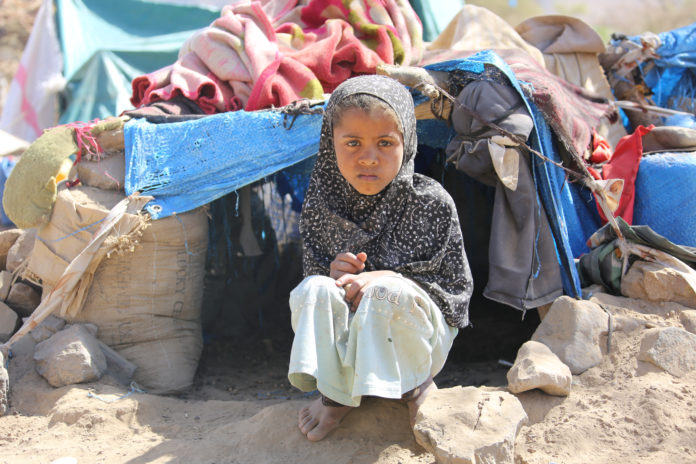
Yemen’s already dire hunger crisis is “teetering on the edge of outright catastrophe,” UN agency chiefs have said as new data from the war-ravaged country indicated potential record food insecurity.
The UN says that today more than 17.4 million Yemenis are food insecure, and an additional 1.6 million “are expected to fall into emergency levels of hunger” in the coming months.
This will take the total of those with emergency needs to 7.3 million by the end of the year.
Of extreme concern to humanitarians, the UN says, is the likelihood that the number of people experiencing “catastrophic” – or famine-like – levels of hunger, will increase five-fold, from 31,000 now to 161,000 by December 31.
“These harrowing figures confirm that we are on a countdown to catastrophe in Yemen and we are almost out of time to avoid it,” said World Food Programme Executive Director, David Beasley.
“Unless we receive substantial new funding immediately, mass starvation and famine will follow. But if we act now, there is still a chance to avert imminent disaster and save millions.”
The development comes as heavy fighting was reported over the weekend between Yemeni government troops and Ansar Allah separatists – also known as Houthi forces – around the oil-rich northern city of Marib (which is still under government control) killing and wounding dozens of combatants.
Subscribe to our newsletter and stay updated on the latest news and updates from around the Muslim world!
Highlighting the long-lasting, negative impact on children, UNICEF Executive Director Catherine Russell warned that “more and more children” were “going to bed hungry” in Yemen.
“This puts them at increased risk of physical and cognitive impairment, and even death,” Ms. Russell added. “The plight of children in Yemen can no longer be overlooked. Lives are at stake.”
According to the latest food insecurity analysis, there has been a rise in acute malnutrition among children under five in Yemen as well as new mothers.
Across the country – already one of the world’s poorest before conflict escalated – 2.2 million children are now acutely malnourished; an additional 500,000 youngsters face severe acute malnutrition, which is a life-threatening condition.
Among the worst-hit governorates are Hajjah, Hodeida and Taizz.
Pregnant or nursing mothers are also at risk from the dire lack of food, with around 1.3 million acutely malnourished, according to the new Integrated Phase Classification (IPC) analysis on Yemen, released on Monday.
“The resounding takeaway (of the IPC findings) is that we need to act now,” said Mr. Gressly, UN Resident and Humanitarian Coordinator for Yemen. “We need to sustain the integrated humanitarian response for millions of people, including food and nutrition support, clean water, basic health care, protection and other necessities.”
Conflict is widely blamed for creating Yemen’s disastrous economic slide in recent years – and for driving up hunger levels – as the Yemenir depreciation pushed food prices in 2021 to their highest levels since 2015.
Albeit happening thousands of miles away, the Ukraine crisis prompted by the Russian invasion is expected to lead to “significant import shocks” and higher prices, as 30 per cent of Yemen’s wheat imports come from Ukraine.
“Peace is required to end the decline, but we can make progress now,” insisted Mr. Gressly. “The parties to the conflict should lift all restrictions on trade and investment for non-sanctioned commodities. This will help lower food prices and unleash the economy, giving people the dignity of a job and a path to move away from reliance on aid.”

















